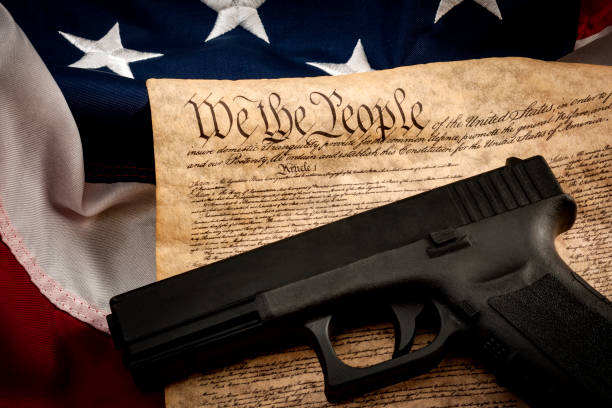President Joe Biden and Speaker Mike Johnson both found themselves calling for cooler heads after the weekend assassination attempt against former President Donald Trump, Biden’s re-election rival.
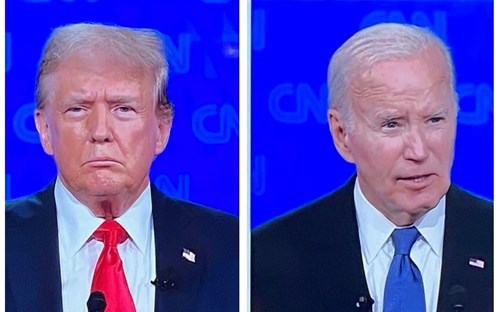 Biden drew some criticism for not responding more quickly to Saturday afternoon’s near-fatal shooting. He did address the nation from the Oval Office Sunday evening in a strong tone.
Biden drew some criticism for not responding more quickly to Saturday afternoon’s near-fatal shooting. He did address the nation from the Oval Office Sunday evening in a strong tone.
“There’s no place in America for this kind of violence...for any violence ever. Period. No exceptions," he said. "We can’t allow this violence to be normalized. The political record in this country has gotten very heated. It’s time to cool it down. We all have a responsibility to do that."
Speaker Johnson agreed with that sentiment Monday morning.
“Your political opposition is not your enemy," he told the "Washington Watch" program. "The whole secret to our system, the way it’s supposed to work, is that you have vehement opposition, but you have vigorous debate then you move forward. We’ve got to get back to doing that."
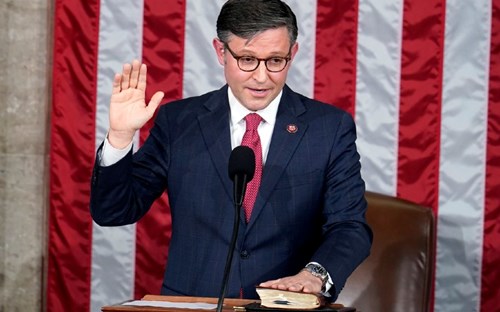 The program broadcast live from the Republican Convention in Milwaukee, where Johnson is the event chairman.
The program broadcast live from the Republican Convention in Milwaukee, where Johnson is the event chairman.
“There are offenders on both sides of the aisle, and I’m the first to point that out. I’ve done that consistently since I got to Congress,” Johnson told show host Tony Perkins.
The soft-spoken House Speaker, now in that post for nine months, knows about being described as an enemy of secular progress. Because of his open Christian faith, Johnson is frequently described as a "Christian nationalist," who wants to establish a "theocracy," by fear-mongering Democrats.
"What they'll do, if you meet them, is they're very polite but they want a theocracy," James Carville, the Democrat strategist, warned in a viral video about Johnson.
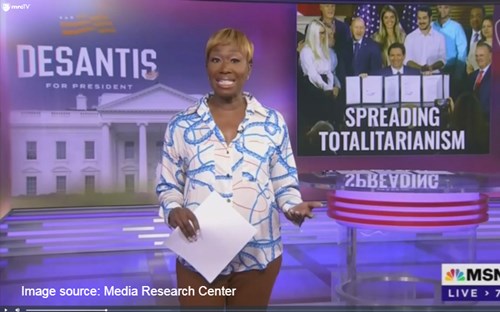 "Johnson has already said he doesn't believe in democracy," Carville continued, twisting Johnson's civics lesson that the United States was established as a republic form of government.
"Johnson has already said he doesn't believe in democracy," Carville continued, twisting Johnson's civics lesson that the United States was established as a republic form of government.
That description doesn't sound like Johnson, a Louisiana congressman who drafted a “commitment to civility” document as a Congressional freshman eight years ago.
“Basically, it was a one-page restatement of the Golden Rule," Johnson recalled. "That we treat one another with dignity and respect."
Biden repeats 'bloodbath' comment
Biden, 24 hours later after the Oval Office speech, raised the temperature into the red in an NBC News interview. After sort-of apologizing for a comment about putting Trump in the "bulls eye," one apology seemed like enough for the ailing president. He did not apologize, or backtrack, from calling Trump a danger to democracy at campaign appearances.
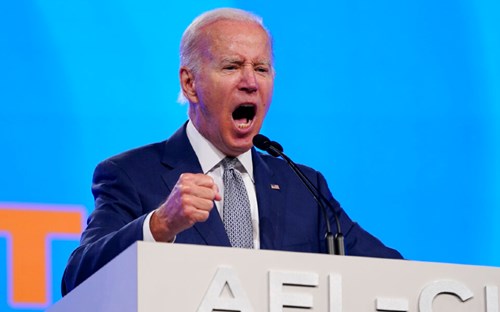 Biden also repeated the “bloodbath” comment from Trump that has been taken out of context.
Biden also repeated the “bloodbath” comment from Trump that has been taken out of context.
At a March 16 campaign rally, while discussing the auto industry and U.S.-China trade relations, Trump predicted "a bloodbath for the whole country” in an apparent reference to economic conditions nation-wide.
“How do you talk about the threat to democracy, which is real, when a president says things like he says?” Biden asked Lester Holt.
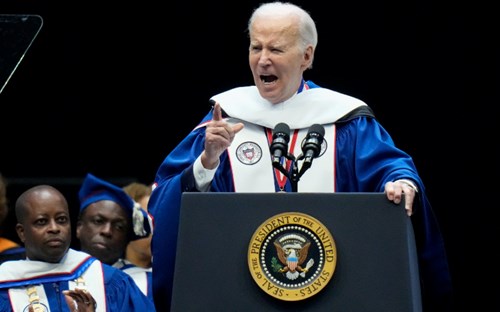 “I’m not engaged in that rhetoric," Biden, who routinely engages in that kind of end-of-America rhetoric, continued. "My opponent is engaged in that rhetoric, talking about there will be a bloodbath if he loses.”
“I’m not engaged in that rhetoric," Biden, who routinely engages in that kind of end-of-America rhetoric, continued. "My opponent is engaged in that rhetoric, talking about there will be a bloodbath if he loses.”
Back on the "Washington Watch" program, Johnson summarized the political "tinderbox" as Election Day nears.
"It is a fact that our Democrat colleagues have painted Donald Trump out to be the enemy of freedom," Johnson pointed out. "They used that language all the time. If he's elected, it's the end of democracy. It's the end of the Republic. You can tell people that enough, and they begin to actually believe it, and it spurs on what has now become political violence.”
Trump attack defined 'evil'
In the way Americans united after attacks on the World Trade Center in 2001, the political rhetoric took a break - a brief one - after the Trump assassination attempt. The Democratic National Committee halted all digital and television advertising, and the Biden campaign suspended its advertising.
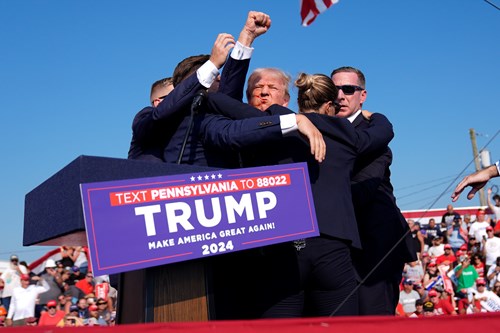 “There were some very interesting things that happened,” Albert Mohler, president of Southern Baptist Theological Seminary, told Perkins. “Everyone spoke of this immediately in terms of good and evil. So, all the liberal progressive social constructivism, the anti-realism, all the suggestion that it's only conservatives who believe in an objective right and an objective wrong, you'll notice that when something like this happens, all that goes out the window."
“There were some very interesting things that happened,” Albert Mohler, president of Southern Baptist Theological Seminary, told Perkins. “Everyone spoke of this immediately in terms of good and evil. So, all the liberal progressive social constructivism, the anti-realism, all the suggestion that it's only conservatives who believe in an objective right and an objective wrong, you'll notice that when something like this happens, all that goes out the window."
The only way to achieve the cooler temperatures Biden says he supports, Mohler said, is if both sides take a long, hard look at language because words matter. Even politics uses war-like imagery, he said.
“This is a reminder that we need to be careful with our language," he warned. "There are some people who do not understand the difference between a political campaign and a fighting war."



